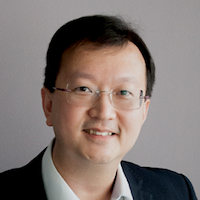The pandemic has upended a lot of industries on a global scale. It has had a considerable impact on the education sector. According to the UN Children’s Fund, more than a billion children across the globe are at risk of falling behind in their studies due to school closures in at least 188 countries as of mid-2020. Ninety percent of these countries have adopted digital or broadcast-based learning solutions, says UNICEF. However, there are gaps in terms of delivery due to infrastructure in many emerging economies.
The EdTech and smart classroom sector was a $73.9 billion industry in 2019, and it is set to grow at 16.1 percent CAGR through 2027. The pandemic is accelerating innovations and investments in this sector, even as educational institutions, households, and students, exerted extra effort to adapt to such digitalization when the school closures started. Even in countries that have shifted primarily to digital learning platforms, there is a challenge in effective engagement and delivery.
For Eric Lam, Founder and Chief Executive Officer of Amdon Consulting Group, the biggest challenge in building EdTech platforms involve delivery and design. “In general, EdTech developers think too much as programmers rather than educators,” he told TechNode Global in an interview. “It may involve a lot of technical features. However, at its core, the main drivers of success in an education platform are design and delivery.”
Established in 1999, Amdon is a provider of interactive content and inquiry-based pedagogical resources, especially in the fields of Science and Technology. The company also provides business consulting, particularly in the field of learning, through Amdon Business Learning. Recently, the Amdon Group raised an undisclosed amount of investment funding in November 2019.
A focus on delivery

An educator by profession, Lam has led the company in training over 7,000 educators worldwide in the practice of inquiry-based pedagogy and assessment methodologies. Through his leadership, Amdon also designed and developed internal coaching digital content for officers and business advisors at the Standards, Productivity and Innovation Board (SPRING) Singapore. Lam has also co-authored more than 10 secondary science textbooks utilized by schools in Singapore and internationally.
Lam added that an education platform needs to be pedagogically sound. But more than that, it also needs to be engaging, so that its users can effectively learn and then apply what they have learned. “You have to deliver it effectively,” he stressed.
The biggest focus in EdTech is not only the applications, Lam said. “We are always looking at the latest technologies in doing our jobs. These can help, but ultimately the business of education is to get learners to want to learn.”
Through this approach, Lam says that users will eventually become proactive learners. “If they want to learn what you want to teach, they become self-directed learners. They proactively consume the content you provide them.”
Getting learners to want to learn
For Lam, it is important to have a headstart in having a love for learning. Thus, one of Amdon’s highlights is STEMWERKZ, its trademarked educational software featuring instruction in science, technology, engineering, and mathematics for K-6. Due to the effective delivery, Lam says that children are consuming the content on their own volition. It is a viable alternative to the primarily entertainment-focused content on platforms like YouTube.
“We found that children were themselves signing up and consuming our content–signing up for lessons even during their vacation time. We managed to ‘push a button’ in the psychology of learning–to get them to want to learn,” Lam told TechNode Global.
The biggest challenge in EdTech, therefore, is getting its users to love learning, and to be drawn toward the learning process. This is the basic tenet of Engineering studies, Lam says–to learn the process of problem-solving.
When done incorrectly, this can be the downfall of EdTech platforms, he warned. “We found that even with good content, if an online instructor is not an effective communicator, it can be an ineffective mode of learning,” Lam said of the traditional synchronous means of remote learning.
“Learners, especially at a young age, need to be involved and immersed. They need to be drawn into the narrative,” Lam stressed.
An opportunity amid the pandemic

According to Martin Lee, Senior HR Advisor and Director for Partnerships at Amdon Group, the pandemic has become a good opportunity for EdTech to shine, especially with how schools and learning institutions have been pushed toward finding innovative means of pedagogy.
“We now have around 10,000 teachers on the platform,” Lee told TechNode Global. “When we launched STEMWERKZ, the teachers themselves referred their students due to the interactive nature of the platform.”
He also recounted how school divisions–such as several districts in Pampanga province in the Philippines–have approached Amdon to train their teachers in better utilization of technology solutions.
The company is letting teachers and educators use the platform for free this year to augment their capabilities during the pandemic. Meanwhile, the solution uses a subscription model for students.
Engagement at scale
Lam recounted how a teacher from South Africa had championed the use of the company’s learning platform with remarkable results. The teacher shared data with Amdon: “There was a significant shift in the performance of students toward better grades,” Lam shared. “The peak of the bell curve–or the mean scores–increased from 50 to 65 percent, to 70 to 80 percent.”
Granted, grades are not everything in learning. However, Lam has stressed that performing well in classes and tests should not be the end in itself, but rather a byproduct of learning skills and problem-solving. This is the essence of science and engineering, although some educators and learners might only be focusing on certain aspects without addressing the learning skills.
Lee stressed how the technology and ideals behind Amdon can expand beyond the K-6 market, particularly since the company also provides consultancy services for corporate learning.
“We focus on personalized learning, micro-learning, adapting to the needs of educators, granularized content, and just-in-time learning. This translates very well to the enterprise or institutional setting,” shared Lee, who is a senior HR practitioner with expertise in recruitment, onboarding, performance management, succession planning, and especially learning and development.
He added that the company is working with a major legal firm in Singapore, as well as Harvard Medical School and certain financial institutions, in designing easy-to-access learning materials.
Eric Lam goes on to conclude how the global situation has presented both challenges and opportunities. “COVID has accelerated our willingness to explore digital technologies. However, tech alone will not be sustainable if the design is not good. A lot of EdTech companies might die out–ultimately, the ones with the best design will win,” he told TechNode Global.

